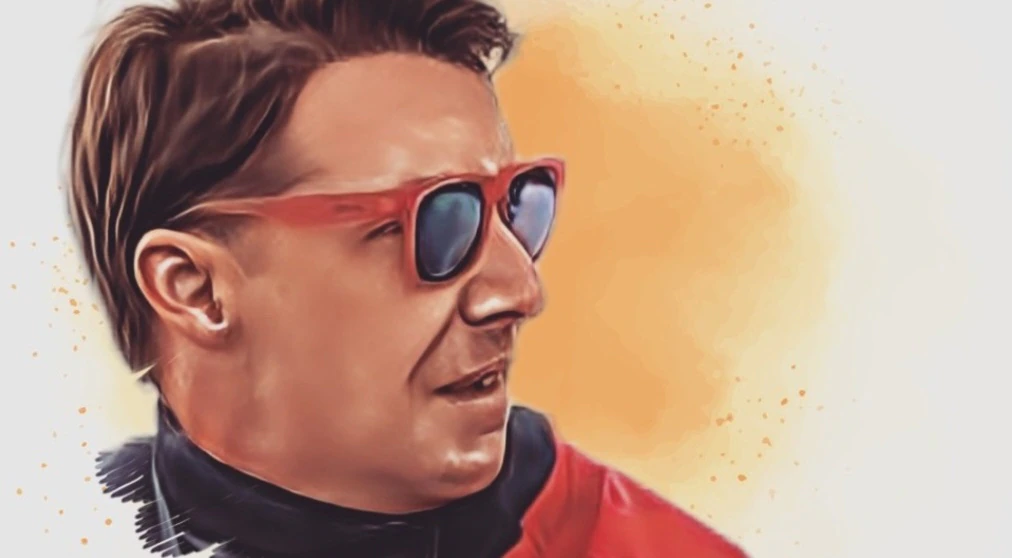After crossing Lake Erie on May 31, Mike Shoreman became the first person with disabilities to paddleboard from one country to another, a world record. Shoreman described that he “was battling rip currents all afternoon” a grueling undertaking where “vertigo hit in the second hour” taking “the support boats and himself off course.” A born fighter, Mike pushed through, and thirty hours later, planted his two feet in Fort Erie, Ontario, where “one hundred people showed up [including] the mayor” to celebrate his arrival.
Shoreman, labeled as ‘The Unbalanced Paddleboarder’ was diagnosed with a rare disease, the Ramsay Hunt Syndrome in November 2018, which resulted in the loss of his balance and mobility. A celebrated paddleboarding coach, Shoreman was told by doctors that he would never be able to paddleboard again. At first, explaining to Starboard, Shoreman retold that it was “the toughest thing [he’s] ever been through” a moment where his “identity was stripped away”.
RELATED: What Is Groupthink? How To Avoid This Common Bias
Being told his “business was over and paddle boarding wasn’t a reality for [him] anymore” made him “sick” but Shoreman, an eternal optimist, knew that when there’s a will, there’s a way and set out to relearn and prove that no matter the setback, you can overcome.
He explains, “when I first got on a board again in the Spring of 2019 I lasted three minutes sitting down and it made me sick. It also gave me the confidence that I could go for three more minutes a week later and then five. Two months later, after almost a year of physiotherapy, retraining my brain to walk again, I stood up for a few minutes.”
An incredible story of persistence, Shoreman went from standing up for a few minutes to setting off on a mission to paddleboard across all five great lakes in an effort to raise money and awareness for youth mental health charities across Canada.
Canada’s Great Lake Crossings

Goalcast chatted with Shoreman to learn more; the mission, or as he calls it Canada’s Great Lakes Crossings, was inspired by Canadian legends who conquered athletic feats to raise money for charity. As Shoreman explains, “I’ve been compared to Vicky Keith and Jeff Adams, Jeff Adams went up the CN tower in his wheelchair, raising money for kids with disabilities” and “Vicky Keith, in 1988, became the first person to swim across all five great lakes, she raised six hundred thousand dollars for children with disabilities.”
Keith’s achievement mirrors Shoreman, “she really paved the way for this to happen, she showed us what’s possible and thirty four years later, I’m setting out to do the same, but a little bit different, as I’ll be on a paddle board.” Shoreman sees the duality between Keith and himself as one that could echo into future generations, “I hope that from now until thirty four years from now, this inspires others to think ‘I can do this’ as well.”
Shoreman studied Keith’s crossing and when his team “looked at the numbers, [they] realized that the longest crossing that she did was Lake Michigan, and that was 73 km, so I thought well I did 71 km, so we can do this.”
RELATED: Open-Mindedness: 5 Practical Steps To Open Your Mind
Keith’s journey inspired Shoreman to embark on his own so, naturally, he reached out to her and the two became friends. Among a mutual bond of raising awareness for social causes, Shoreman inquired about the dangers Keith faced on her crossings. Keith shared with him that “on the Lake Erie crossing, she attempted to do a double crossing but was pulled for safety because of the tide.”
Shoreman’s Mindset & Preparation

There are a variety of potential dangers that Shoreman could face on his crossing, explaining “anything can happen, these are great lakes, they are like oceans, I am going to have to paddle through the night,” referencing that some of the crossings Shoreman will be embarking on could take up to thirty-six hours. During a more vulnerable point in the interview, he shared what he thinks his biggest challenges will be; “It’ll be multiple things, It’ll be exhaustion, It’ll be fatigue, I’m really hoping it’s not dehydration, I’ve seen marathons where people have been pulled out of the water and paramedics were on the shore to greet them, I hope that’s not the case.”
Shoreman explained that he suffers from “vertigo and dizziness as part of my neurological condition so even when I turn my head slightly it spins like a carousel.”
RELATED: What Is the Google Effect, How Does It Hurt Your Mind – And What Can You Do About It?
In combat to this, Shoreman regiments his paddle routine by standing up for thirty minutes, sitting down for thirty minutes, three sets at a time, followed by a twenty minute break. Shoreman is realistic about the dangers that lie ahead and plans well in advance to tackle them. With both physical danger there comes a mental challenge that is equally as tough. We chatted about mental aptitude and how he remains focused for the big day.
He mentioned that he has consistent meetings with a mindset coach and incorporates meditation into his daily routine, all in preparation to remain as calm as possible going into the challenge. He explains how important sleep is, “It’s easy to let your mind race at night but you have to put yourself in a place where you’re excited for sleep. Sleep is incredibly important since I won’t be sleeping during the crossings.”
Looking Beyond Self

On this crossing, Shoreman will be raising money for two partners, as he explained “I am a person with disabilities but I’m raising money for critical mental health programs and services for kids in our local communities and across Canada, so I’ve partnered with Jack.org, who are Canada’s leading mental health organization for young people, what they do is they provide critical mental health program and services in every community, every province and territory across Canada with a focus of enstating chapters of their organizations in schools.”
Along with Jack.org, Shoreman is also partnering with eSSENTIAL Accessibility, who help people with disabilities equitably access the digital world through web accessibility compliance and assistive technology.
Shoreman’s journey has just begun and will continue to unfold all summer. The Lake Eerie crossing has already taken place and now Shoreman has two left, two in June at Lake Huron and Lake Michigan, “July is Lake Superior, from Wisconsin to Minnesota, and the final crossing is in August in Lake Ontario, arriving in the Toronto harbor by the CN tower.” He has so far raised one hundred thousand dollars and is hoping to meet Keith’s record of six hundred thousand. We are wishing him luck and a safe journey.
KEEP READING:
Train Your Brain to Shed Distracting Habits and Concentrate Better
Credit: Source link



